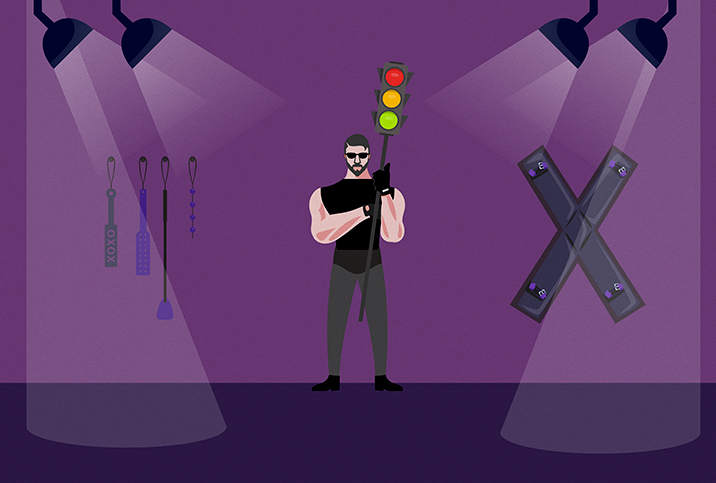Molly Manning Walker's 'How to Have Sex' Shows Cruciality of Consent

Key Points
- Molly Manning Walker's award-winning film "How to Have Sex" is a look at the stigma around saying no to sex.
- Based on her own experiences, Walker's film follows an introverted girl named Tara who's pressured to have sex by both her friends and the man she finally sleeps with.
- The aftermath of the encounter and her fear of telling people what happened illustrate some of the experiences women are going through in today's youth culture.
The title of "How to Have Sex" is, in a way, a bit of very dark humor surrounding sex. Directed by first-time filmmaker Molly Manning Walker and winner of the Cannes Film Festival's Un Certain Regard prize, the film follows three teenage girls on a trip to Malaga.
Their plan? To get drunk and have sex.
What is 'How to Have Sex?'
Walker offers a study of Britain's youth culture. It's an ominous portrait of a sweaty, smoky world of five-day benders, bright blue cocktails, Axe body spray and neon minidresses.
It's a world in which having sex is the ultimate badge of honor, but also one in which the concept of consent is as blurry as the girls' vision after five sleepless, drunken nights of partying.
At the center of the story is Tara (Mia McKenna-Bruce), a young, relatively introverted girl who often finds herself in the shadow of her more outgoing friends, Skye (Lara Peake) and Em (Enva Lewis).
After arriving in Malaga, the three women dive headlong into the grimy strip of nightclubs near their hotel. Soon, they meet Badger (Shaun Thomas), a tattooed, chain-smoking teen with a surprising heart of gold, and Paddy (Samuel Bottomley), his leering friend.
Tara is drawn to Badger, but after losing track of her friends one night, she finds herself alone with Paddy. He suggests they walk to the beach. He suggests they go swimming. She refuses. He picks her up and carries her, struggling, into the cold water.
He deposits her on the sand of the dark, empty beach. What follows is a profoundly uncomfortable sex scene. Paddy secures a whispered "Yes" from Tara, but it's evident viewers are watching her being violated against her will.
Later, Tara tells her friends what happened—in a way. They're excited.
"You hooked up with someone. Who was it?"
"Paddy," she replies, trying to muster up some of their excitement.
They have no idea how she feels, and she has no idea how to tell them.
Recommended
- Enthusiastic Consent in Relationships Requires Ongoing Conversation: Giving and receiving sexual permission is a skill that needs to be learned and developed.
- 5 Things That Seem Like Consent But Definitely Aren't: It's essential to be clear about where and when the line is drawn.
- Withdrawing Consent Mid-Sex: If it's not a "Hell, yes," it's a no.
What 'How to Have Sex' can teach young people about the importance of saying no
What Walker does so well in "How to Have Sex" is spotlight the culture around sex. For many young people, it is not conducive to open, honest conversations about consent.
Only at the end of the film, in the airport on the way home, does Tara open up to her friend, Em.
"Why didn't you say something?" Em asks her. Having been with Tara throughout the film, we can kind of understand why the teenager found it so hard to speak.
In the first half of the film, Tara is encouraged to have sex with anyone she can find. In the second half of the film, she is congratulated for doing it—even though it's evident she feels violated and disgusted by what has happened. She becomes more silent and withdrawn as her clueless friends continue to make lewd innuendos about her and Paddy.
Many who watch her journey are desperate for her to speak up and tell someone what's happening.
In one striking scene, she sits with Badger. She is silent for a long time, unable to express her feelings and confusion. When she finally finds words that hint at how she's feeling, she whispers, "He's a weird guy." Badger rejects the conversation, excusing Paddy's misogyny and penchant for groping. They're old friends, he says. That's just the way he is.
Within this culture in which misogyny is ignored and even encouraged by young men and women alike, Tara finds it impossible to voice what has happened to her. We get the impression she doesn't even have the language to comprehend it in her mind.
This suffocating feeling of being silenced is something Walker experienced firsthand as a teenager, the filmmaker said in an interview with City News.
"I was assaulted when I was 16 while I was out drinking in London," she said. "Part of why I made [the film] was to talk about that and talk about how it doesn't get talked about. It can suck the air out of a room, but it shouldn't."
The bottom line
"How to Have Sex" is a distressing reminder about understanding the importance of consent. Young people don't always have the language and permission to talk about it with friends.
"If so many people have experienced it, we should be talking about it openly," Walker said.


















